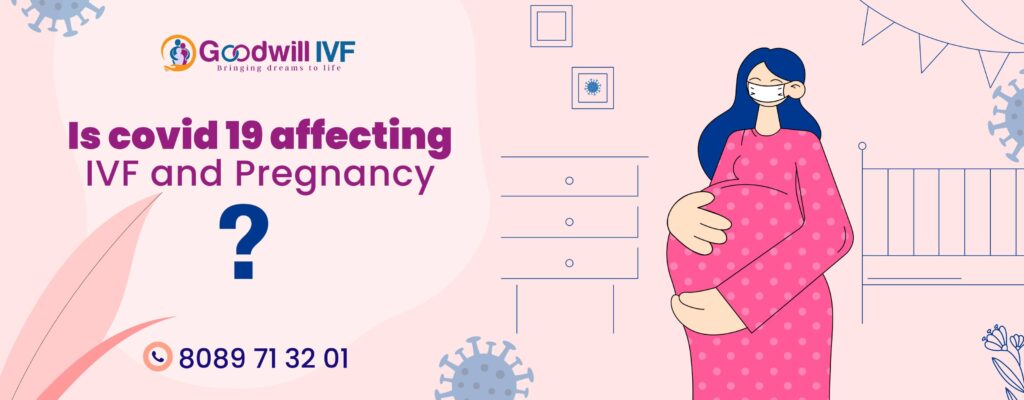Infertility influences all kinds of people. Studies show that about one-third of infertility issues arise from women, and one-third from men. The last third might be because of a blend of both, different variables, or unexplainable causes. It isn’t unprecedented for individuals to encounter indications of infertility. This might be upsetting, as many individuals show no immediate manifestations of infertility until they attempt to conceive.
Indications of infertility in women
In women, indications of infertility might include:
- Painful sex: Dyspareunia or pain during sex can be an indication of a fundamental medical issue that might impact a lady’s fertility. Such medical conditions include infections, fibroids, and endometriosis.
- Excruciating, long, or heavy periods: A few women experience a couple of long stretches of light flow, while others regularly experience heavy periods and uncomfortable spasms. Women who experience extremely heavy excruciating periods might be giving indications of endometriosis, a condition where uterine tissues are typically found outside the uterus.
Different side effects of Endometriosis include:
- Constant pelvic pain (not just during menstruation)
- Painful sex
- Back pain
- Weakness
- Nausea
- Irregular periods and spotting
- Gut issues or pain with defecation
- Dull or pale menstrual blood
Assuming that menstrual blood is regularly paler than expected, this might be a reason for concern. Menstrual blood is generally radiant red towards the start of an individual’s period and may get darker throughout the next days.
Passing extremely dull, old blood toward the start of a period can likewise be an indication of Endometriosis. In the event that an individual is encountering the following manifestations, they may need to consult a specialist.
- Irregular menstrual cycle: The length of a menstrual cycle changes among people. Having an irregular cycle, including missing periods, can add to infertility, as it implies a lady may not be regularly ovulating. Ovulation is the point at which the ovary delivers an egg. Irregular ovulation can be because of many issues, including Polycystic Ovary Syndrome (PCOS), obesity, being underweight, and thyroid issues.
- Hormonal changes: Indications of hormonal changes can be vague, and an individual may not see them or know the fundamental reason. A specialist can test for a few hormonal issues.
Changes in hormonal levels can lead to:
- unexplained weight gain
- extreme skin cracking
- cold feet and hands
- decreased sexual drive
- beard growth in females
- diminishing hair on the highest point of the head
Other contributing elements that might influence fertility in women include problems of fallopian tubes or ovaries, premature menopause, PCOS, endometriosis, disease and malignant growth treatments
- Obesity: A recent report observed that obesity may adversely influence regenerative wellbeing. Women with obesity have a lower likelihood of conceiving and are at a higher chances of issues during pregnancy than those without weight issues.
- Not getting pregnant: The essential indication of infertility isn’t getting pregnant in the wake of trying for a specific period of time. A specialist might analyze infertility in the event that a lady has not become pregnant following 1 year of unprotected sexual intercourse.
Indications of infertility in men
Indications of infertility in men can include the following:
- Imbalance in Hormones: An assortment of abnormal hormonal characteristics can influence a man’s fertility. Testosterone is a critical hormone for male fertility, so issues with the testicles that potentiates this hormone might cause infertility. The pituitary gland releases luteinizing hormone and follicle-stimulating hormone. So, any issues with this organ may likewise result in infertility.
- Erectile dysfunction: Hormonal changes, mental problems, or other issues might make it hard to initiate or maintain an erection. Assuming this turns into a regular event, it might impede sexual intercourse or be an indication of a basic issue.
- Issues with ejaculation: Experiencing issues discharging or seeing changes in the ejaculation, like a drop in volume, may likewise be an indication of a hidden issue connected with a man’s fertility.
- Issues with the testicles: Sound testicles are a significant part of male fertility. Small or firm testicles may be one more indication of hormonal imbalance. Enlarged, excruciating, or delicate testicles might be an indication of a basic issue, for example, a disease, that can likewise affect sperm quality and male fertility.
- Obesity: Research shows that obesity in men leads to infertility. Obesity can be dangerous for different conditions that might affect a man’s fertility like sperm quality and sexual dysfunction.
Other factors adding to infertility in all kinds of people include:
• Age
• Smoking tobacco or cannabis
• Drinking alcohol
• History of sexually communicated diseases
• Stress
• Abnormal eating habits
When to see a specialist
Anyone encountering problems of infertility and who has been attempting to conceive for over a year (or a half year if more than 35 years old) might need to consult a specialist for expert analysis. There might be straightforward ways of making life adjustments to further develop fertility, while other fundamental causes might require treatment. Book an appointment and converse with our expert specialists at Goodwill IVF Treatment Center, one of the best infertility treatment centers in Kerala.


